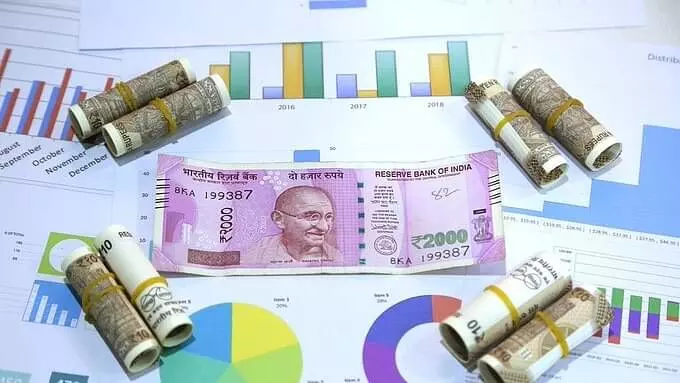
Is privatisation really good for India?
text_fieldsImage for representation only
The ongoing debate on the Modi -government's programme of privatisation of public sector enterprises (PSE) has a certain ring of déjà vu. The protagonists of privatisation argue, in support of the government that private sector has always been more efficient than the public sector. Unbeknownst to them, this argument in its logical extension might lead to a preposterous but valid question as to why not privatise the government itself.
Exemplifying their point, they say that the US that followed the private sector path grew into a global economic power, whereas the UK, which favoured the public sector was driven to bankruptcy by the late 1980s. They conveniently forget that capitalism (read private capitalism) pushed to its death bed by the great depression of 1929 was rescued by Keneysian prescription of public investment. This prescription, which has been largely instrumental for the genesis and spread of public sector across the world with it, was brought into disrepute by neo-liberal economists of 1980s.
Likewise, it is a fact that after the Nehruvian tryst with socialism (with Indian characteristics) emphasising commanding role of the public sector in the mixed economy, and the licence raj that thrived in its wake, India began to liberalise in 1980s and the private sector simply zoomed and overtook the public sector in performance. But even in this bland reading of history, one needs to remember that it was not as much Nehru, as it was the Bombay Plan prepared by the then eight leading capitalists of the country that proposed huge public investment in basic industries. Politically, working of this plan served as a socialist rhetoric for the then government. When one reads about economics of Russia and China flying off once they privatised their PSEs, one should remember that their privatization success was also due to the infrastructure created by their PSEs. Therefore, such superficial presentation of historical data, sans analysis, may win the argument but would not help us grasp their true import.
It may be said as an axiom that an enterprise, if left unencumbered from every regulation and control will surely be more efficient than the one shocked by them. The seeming better efficiency of the private sector than that of the public sector is explained by this axiom. But that may also not be so as it appears. When one reels select data on performance to show superiority of the private sector, one must also account for various tax and non-tax exemptions routinely granted to them and also huge NPA of the PSU banks, being largely due to them.
In 1995 as a member of the study group for deregulation of Oil Industry, I studied the long-term comparative performance of ONGC, a quintessential PSE, vis-à-vis global oil majors, and did not find any significant difference to the discomfort of the government. Again, in the post-liberalisation euphoria when the government gave more power to the Board of the cash-rich PSEs, the oil companies rushed to form dozens of joint ventures (JV) with private partners in the private sector (PSE equity being restricted to 50%). Within a few years, all of these JVs, barring a few ended with huge write-offs. Therefore, there is no conclusive evidence that the private enterprise is intrinsically more efficient than the PSE. The most important factor, however is not efficiency but effectiveness, the term conspicuous by its absence in this debate. Even in conventional business management, efficiency is not singularly valorised, without its conjoint parameter, effectiveness which is a measure of fulfilment fo the goal/objective by the enterprise. The enterprise that makes money in short term but falters on its strategic directions is no good. Likewise, the economy that makes huge leaps in its GDP, may not be good if it fails to provide basic liberties and wherewithal – health, education and livelihood securities – to its citizens.
Hypothetically, if we hand over the economy to a corporates with some repute, to maximise GDP, I am sure, it would take it to the levels beyond imagination. But would it serve our purpose as a nation? The goal of the economy cannot be divorced from the constitutional vision as spelt out in its Preamble, various articles and most importantly, the Directive Principles of state policy. It aims at creating a social order in which justice, social, economic and political , shall inform all institutions; the order that is based on liberty, equality and fraternity and justice as Dr. Babasaheb Ambedkar explicated.
While there is no conclusive proof that private sector is more efficient than the public sector, there is no doubt that it can never meet the effectiveness criterion of the economic development of India.
(Author is Senior Professor and Chair Big Data Analytics at Goa Institute of Management, alumnus of IIM Ahmedabad, Ex-Professor IIT Kharagpur (VGSOM), currently lodged in Taloja Jail awaiting trial)
























